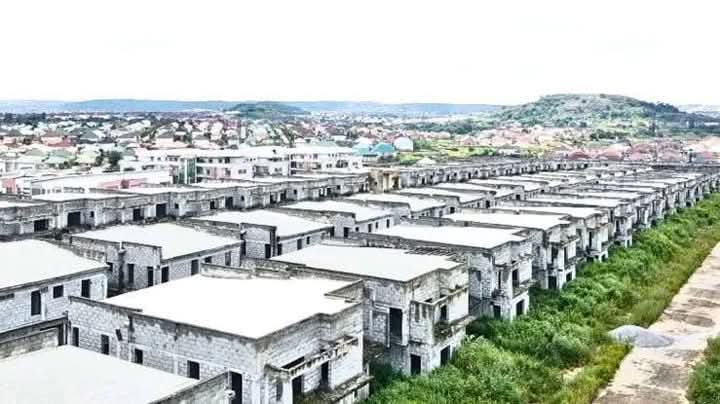A Federal High Court in Abuja has struck out an application by the embattled former Governor of the Central Bank of Nigeria (CBN), Godwin Emefiele, seeking to reclaim ownership of a sprawling real estate development comprising 753 duplexes.
In a ruling that drew national attention, Justice A. R. Mohammed dismissed Emefiele’s suit for lack of merit, marking another legal setback for the former apex bank chief who is currently facing multiple corruption and abuse of office charges.
The estate in question valued in the billions of naira and located in the upscale area of Guzape, Abuja was allegedly linked to Emefiele through proxy companies. The Economic and Financial Crimes Commission (EFCC) had secured an interim forfeiture order on the property in late 2023, citing it as proceeds of unlawful activities.
Emefiele’s legal team had argued that the estate was wrongfully seized and that due process was not followed in its forfeiture. However, the court held that the evidence presented failed to prove legal ownership or a transparent source of funding for the massive development.
“The application lacks sufficient grounds and fails to address the substantive issues raised by the prosecution,” Justice Mohammed ruled. “The interim forfeiture order remains in effect pending further investigation.”
The EFCC hailed the judgment as a major victory in its anti-corruption campaign, with spokesperson Dele Oyewale stating that “this ruling reinforces the principle that no individual, regardless of status, is above the law.”
Emefiele, who served as CBN governor from 2014 to 2023, has been under intense scrutiny since his suspension and arrest in June 2023. He is facing several charges including abuse of office, fraudulent foreign exchange allocations, and misappropriation of public funds.
Legal analysts say the ruling could pave the way for a permanent forfeiture of the estate, especially if the EFCC proceeds with additional evidence. Meanwhile, Emefiele’s legal team has indicated plans to appeal the decision.
As the legal battle continues, the case serves as a reminder of the widening scope of anti-corruption efforts in Nigeria and the growing resolve of the judiciary to enforce accountability at the highest levels.

